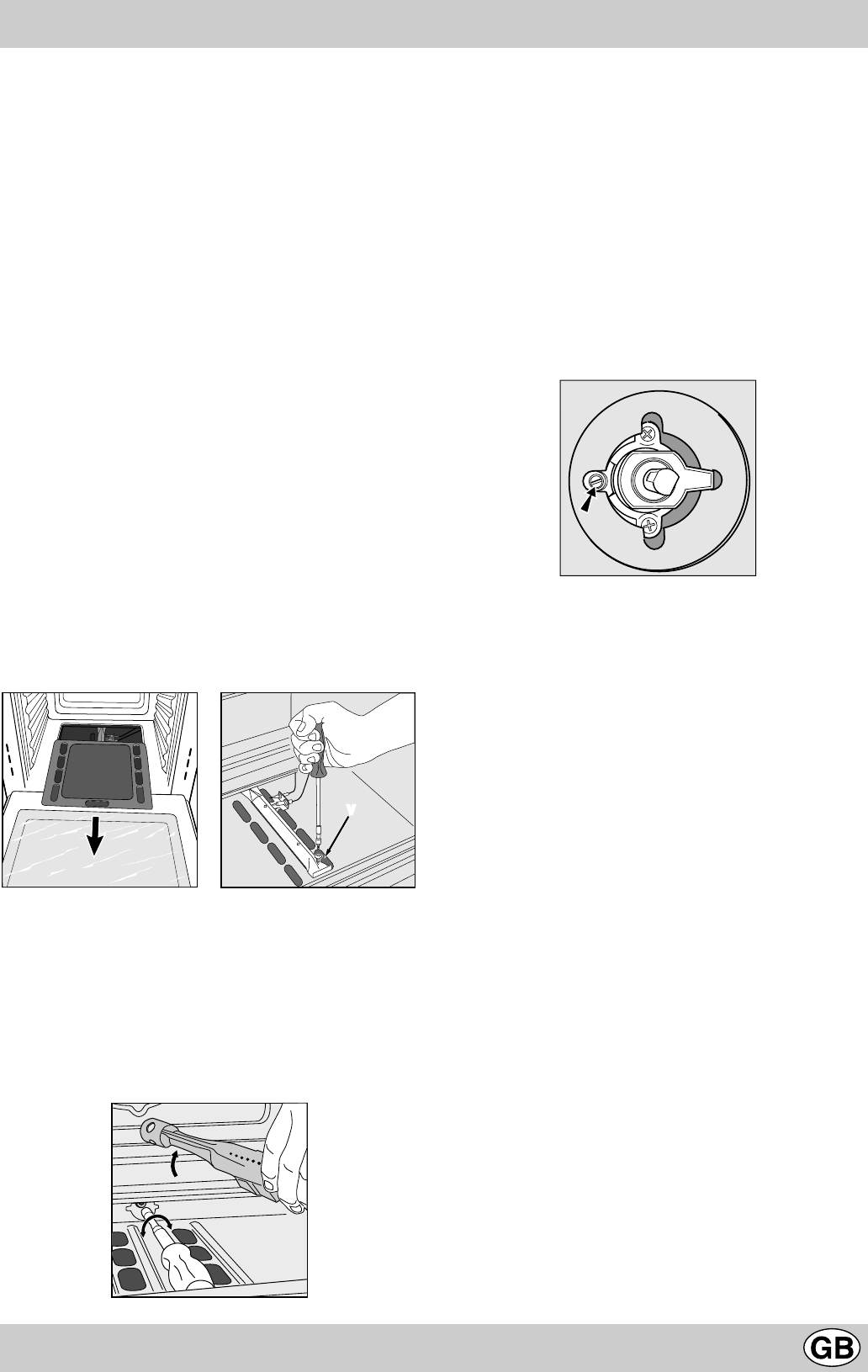
21
Connection with a rigid pipe (copper or steel)
Connection to the gas system must be made in such a
way as not to cause any stress of any kind on the appli-
ance. There is an adjustable L-shaped pipe fitting on the
supply ramp to the appliance, whose watertightness is
ensured by a seal. Should you need to turn the pipe fit-
ting, you must in all cases replace the seal (provided with
the appliance). The gas supply pipe fitting is a threaded 1/
2 gas cylindrical male attachment.
Connecting a flexible jointless stainless steel pipe to
a threaded attachment
The gas supply pipe fitting is a threaded 1/2 gas cylindri-
cal male attachment. Only use pipes and seals that com-
ply with the current National Norms. These pipes must be
installed so that their length is never any longer than 2000
mm when fully extended. Once the connection has been
made, ensure that the flexible metal pipe does not touch
any moving parts and is not crushed.
Checking that the connection is tight
When installation is complete, check the pipe fittings for
leaks using a soapy solution. Never use a flame.
Adapting to different types of gas
In order to adapt the oven to a different type of gas with
respect to the gas for which it was manufactured (indi-
cated on the label), follow these simple steps:
a) Replacing the oven burner nozzle
· open the oven door fully
· pull out the sliding oven bottom
· unscrew the burner fastening screws
· remove screw “V” and then the oven burner;
· Unscrew the oven burner nozzle using the special
socket spanner for the nozzles, or a 7 mm socket span-
ner, and replace it with a nozzle suited to the new type
of gas (see Table 1).
Take particular care handling the spark plug wires
and the thermocouple pipes.
· Replace all the parts, following the steps described
above in the reverse order.
Regulating the Primary Air for the Oven Burner
b) the burner was designed not to need any adjustments
to the primary air.
Minimum regulation of the oven burner
c) Regulate the oven burner minimum:
· Turn the knob first to the Max setting for about 10 min-
utes and then to Min;
· Remove the knob
· remove the disk fastened to the control panel
· adjust the screw located outside the thermostat cock
pin until the flame is small but steady (the flame can
be seen through the slots on the oven bottom).
N.B.: In the case of liquid gas, the regulation screw
must be screwed in all the way.
· Check that the burner does not turn off when you turn
the knob from Max to Min quickly and when you open
and close the oven door quickly.
Warning
On completion of this operation, replace the old rating
sticker with one indicating the new type of gas used. This
sticker is available from our Service Centres.
Note
Should the pressure of the gas used be different (or vary)
from the recommended pressure, it is necessary to fit a
suitable pressure regulator onto the inlet pipe (in
compliance with the current National Norms regarding
“regulators for channelled gas”).
V


















